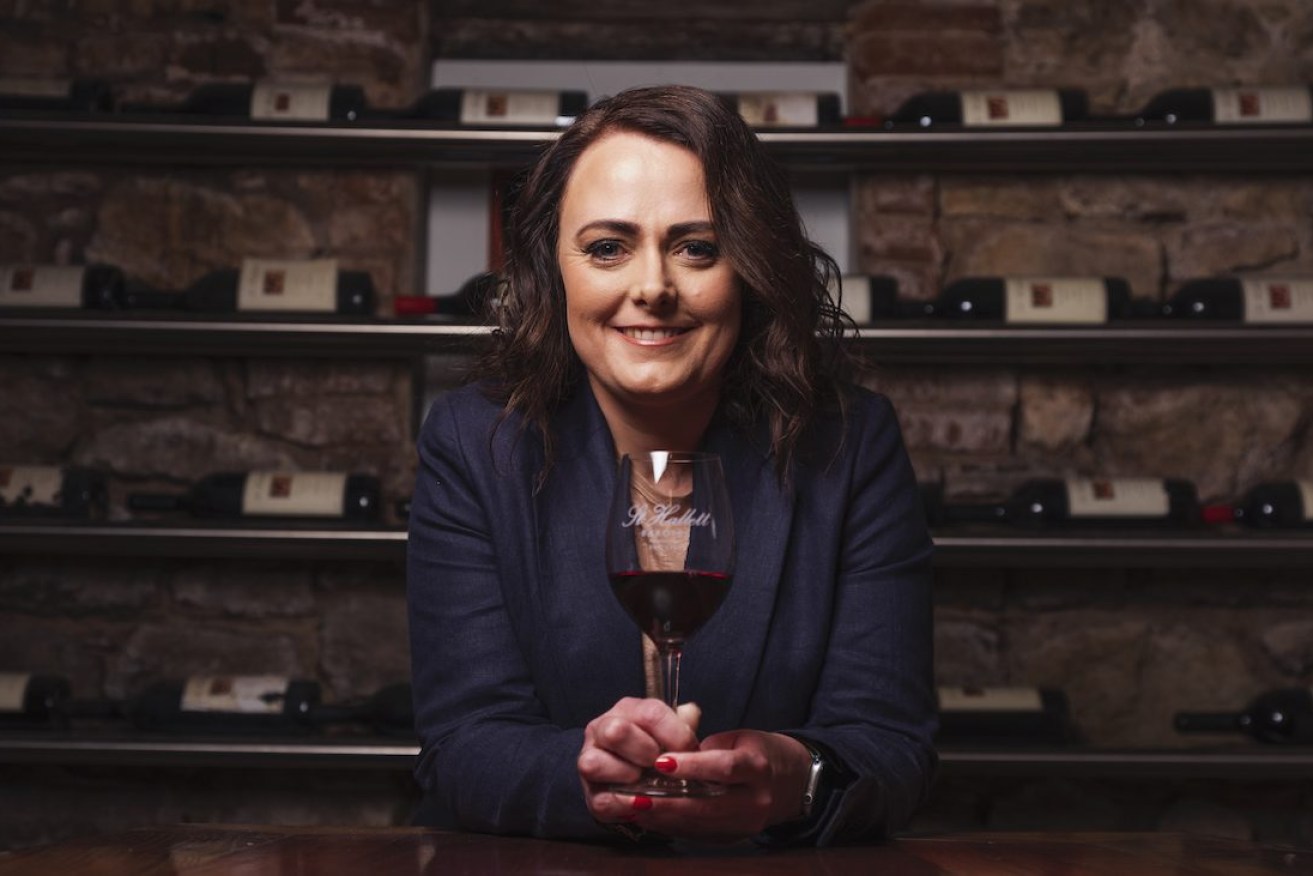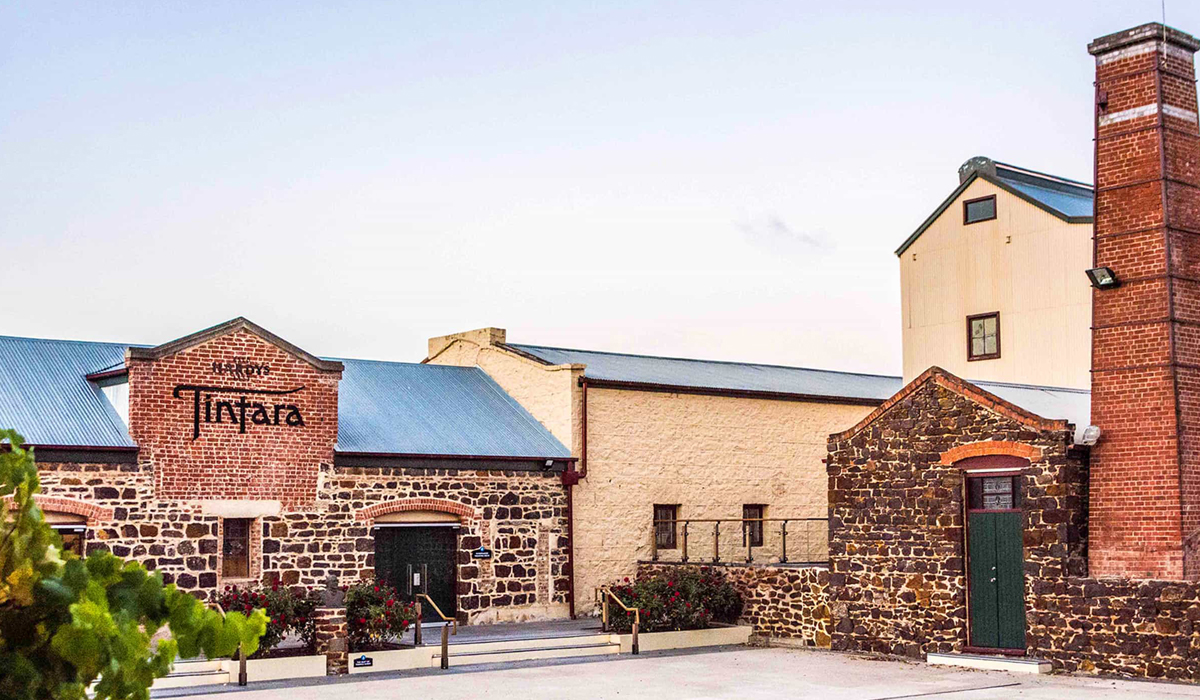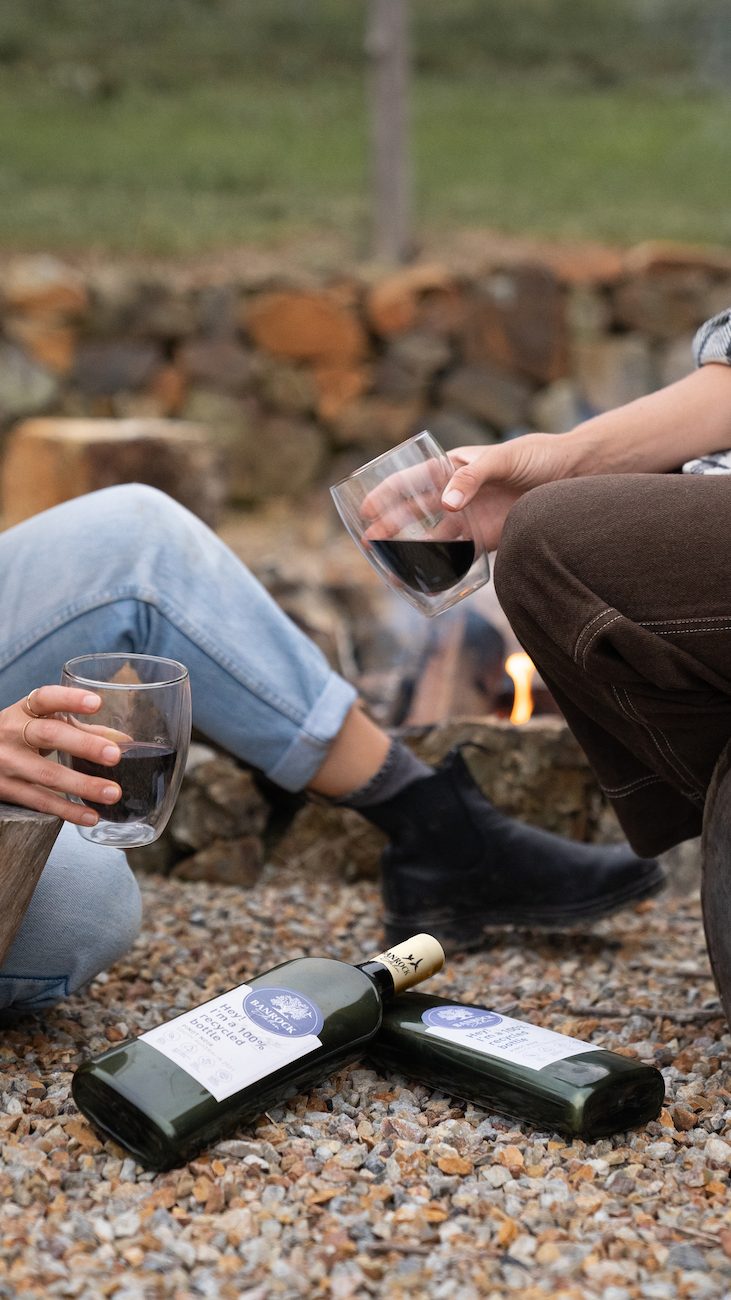Big red boomers falling for Accolade’s aromatic new wine tastes
Accolade Wines and its more than 50 labels ranging from Hardys to Banrock Station is hell-bent on making drinking more fun. Chief global winemaker Helen McCarthy tells InDaily how the drinks giant is tackling a red wine glut and ever-changing tastes with sparkling wines laced with aromatics and “bagnums”.


Helen McCarthy is global director of winemaking for Accolade Wines. Photo: Accolade Wines
Millennials are a more adventurous breed of wine drinker and Accolade Wines’ first woman in the Global and Australia New Zealand winemaking director seat is keen to create new modern styles to please their pickier palettes.
Helen McCarthy is overseeing a new relationship between 78 Degrees distillery in the Adelaide Hills for example as it infuses the company’s Croser sparkling wines with an added zing of botanicals.
There is a new mid-strength Barossa shiraz being made at St Hallett that will appeal to a younger crowd less rusted onto the heavy alcohol content of big reds favoured by their parents and grandparents.
And she tells of worldwide demand for healthier options forging new markets for wines that have absolutely no alcohol content.
“There has been a lot of very stale products and product development, boring things put onto the market, that doesn’t mean they aren’t great wines, but how many 14 per cent shirazes can you put on the market at one time?” she said.
“Over the past 10 years there’s been an increase in spirit drinking like gin, a focus on craft beers, a focus on bespoke, small, interesting wines and also a shift to the healthier side.
“Millennials are not as into wine as baby boomers, the generation Xs or the generation Ys, they are drinkers but they are not as big drinkers as their parents.”
It was nine months ago that McCarthy took over the winemaking helm for the South Australian-headquartered company owned by United States-based Carlyle Group with plans to explore new markets and new styles.
Having spent a few decades honing her skills at premium wineries, McCarthy is based in South Australia where much of Accolade’s wine is produced.
McCarthy is pragmatic in assessing the state’s devotion to making more traditional drops that has led to tanks full of red wine that nowhere near enough consumers want to drink.
The company’s Berri Estate winery in the Riverland is the powerhouse behind its offerings as the largest grape processor in the Southern Hemisphere, crushing a massive average of 220,000 tonnes each year.
A global red wine glut means Berri Estate’s tanks are almost full and Accolade is working with growers to fund mothballing red grape vines or replacing them with white grape vines to cater to changing drinking tastes.
Add Chinese tariffs shutting out what was mainly Australian red wine exports and falling consumer discretionary spending to McCarthy’s job of overseeing winemaking in Australia, New Zealand, South America, South Africa, Europe and the United Kingdom – and the world can expect Accolade to be investing heavily in consumer research and product re-invention.
“I think it’s challenging for the whole industry globally, I guess the sad thing for me is I’ve been in the industry for 24 years and this is probably the toughest period we’ve ever faced,” McCarthy said.
“The other edge of the sword is that it’s refocused not only our company but all the industry in Australia to find new markets and to not put all the eggs in one basket.”
Today, McCarthy is winding up a stint of night shift, filling in for an injured winemaker at Hardys Tintinara winery in McLaren Vale, a welcome spell that keeps her close to the winemaking coalface.
Her typical week usually incorporates a day in McLaren Vale, one in the Barossa where she lives, a day in the city office and a day at Berri Estate in the Riverland – interspersed with regular trips to Tasmania’s Arras or Bay of Fires and Margaret River in Western Australia.

Hardys Tintara Winery in McLaren Vale.
Then there are also trips to the United Kingdom and Europe. Accolade’s Hardys label is the number one wine producer in the UK and most wines the company sells into the country are made from Riverland grapes.
McCarthy remains upbeat about the news that the Australia-United Kingdom Free Trade Agreement Australia received Royal assent in the House of Lords last week – despite savings on wine import tariffs being eaten up by the UK making changes to its duty and volumetric tax.
This is expected to mean, for example, that Australian wine exports will see a 20 pence duty on lower-alcohol wines and a 59 pence duty on wine with alcohol content higher than 11.5 per cent, growing to 70 pence in 2025.
“We sell a lot of commercial six-pound wine you can get in the supermarkets and for the past five years we have been reducing that alcohol content, but all of our premium wines will be hit by that (tax),” she says.
“However, it will be good to have an extra focus on Australian wine and to be able to get into that market with a little more ease.”
Accolade was picked as the official wine supplier for the Commonwealth Games in Birmingham in the United Kingdom last year with some of its labels, including Banrock Station, Jam Shed, Hardys and Mud House, all showcased on the world stage.
It was a sweet twist of fate for McCarthy who was born in the West Midlands city.
She said the sporting accolade gave Accolade the chance to not only show off its wines but it also meant the company’s growing focus on its green credentials aligned with the games’ aim to be carbon neutral.

Banrock Station’s recycled flat bottles. Photo: Accolade Wines
Accolade Wines Europe is the first major wine producer to be fully carbon neutral from vineyard to table, and McCarthy said Banrock Station launched its 100 per cent recycled plastic flat bottles for wine in the UK and Australia.
The focus on how Accolade wines are delivered also has led to more recyclable packaging, single spritz cans and the “bagnum” – a pouch-style cask that launched about 18 months ago that is more environmentally friendly and means opened wines stay drinkable longer.
McCarthy is keen to address younger and more health-focused consumer tastes using the new Croser and 78 Degrees distillery partnership that infuses the sparkling wine with juniper, star anise and various other botanicals as an example.
“Lots of people are into sparkling wine but our research found millennials in particular found it boring,” McCarthy said, adding there are still many untapped markets where Accolade can appeal to varied tastes.
“Consumers globally, it’s always changing, but we’ve seen a significant shift since the start of the pandemic (in drinking habits) and more people looking for healthier options, people are drinking less which is not necessarily a bad thing.
“People are looking into wine and wanting something a little more exciting.”
Traditional drops are still there, consumers wanting a full-bodied shiraz, a buttery chardonnay or a crisp Riesling, will still find bottles on the shelf, but McCarthy said there will be continual tweaks to the vast Accolade range.
A range that includes Petaluma, House of Arras in Tasmania, Houghton, Yarra Burn sparkling, Katnook Estate, Leasingham, Omni, Renmano, Da Luca Italian prosecco, Fish Hoek in South Africa and the list goes on.
“I’m just excited that the world is opening up again and we are actually able to get containers so we can export again … and I’m excited to engage more people in consuming wine,” McCarthy said.
“The exciting thing on the landscape now is there’s a choice.
“How about we have these fine wines and you can also have a shiraz that is served cold, we need to be ahead with innovation and be willing to try these new things.
“Don’t get me wrong, there’s a lot of hard work to get done, but I’m excited about what the prospect of trying to rebuild the sales holds and to push forward.
“I still see a really positive future for the industry it just needs us to be a little bit more creative.”




